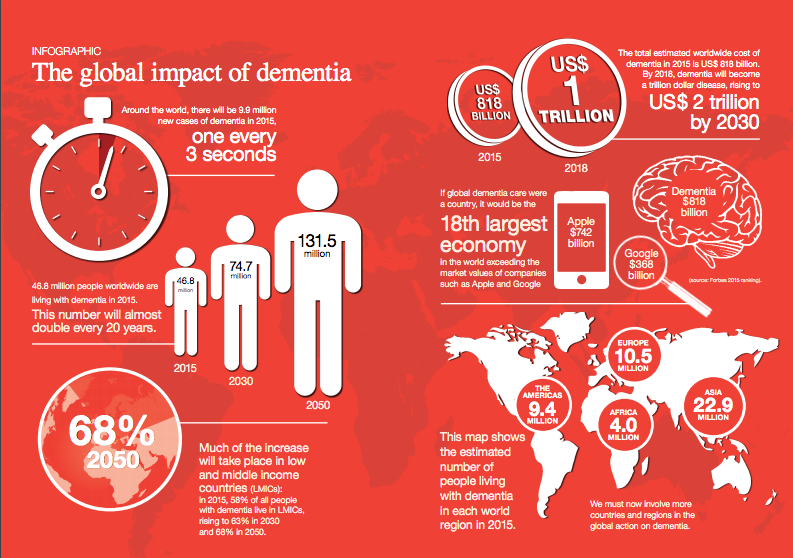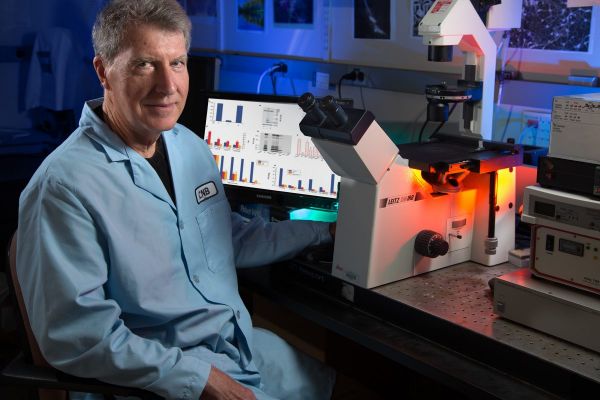Nearly 44 million people around the world suffer from Alzheimer’s today and it’s one of the biggest causes of disability and death among our aging population. This disease is set to be one of the biggest killers with numbers doubling by 2030 and then doubling again by 2050. The hunt for an effective treatment for Alzheimer’s in on a high and it looks like it may be cannabis which is leading the way to potentially being the cure!
The search for a cure or treatment for Alzheimer’s has been going on for a long time. It’s not since the last 10 to 20 years that we have been seeing significant breakthroughs in Alzheimer’s Disease research.
Recently, medical cannabis has been a key focus in this area as many researchers and medical professionals discover that it’s an effective treatment for Alzheimer’s. In this article, we have put together evidence-based information about cannabis as a natural alternative treatment for Alzheimer’s disease and what you can do to help prevent or treat your symptoms.
Before I can share our findings with you, it’s best to for you to find out more about how this disease impacts the patients and the world so can understanding how cannabis fits into the picture.
Providing you with this valuable information is our way to raising awareness of cannabis as a treatment for Alzheimer’s as well as bring hope to those who suffer from Alzheimer’s.
What is Alzheimer’s and How Does it Impact The World?
Alzheimer’s Disease is one of the most common causes of dementia and affects up to 70% of all people with dementia making it the biggest disease in that area.
So what is Dementia? It is the loss of cognitive functioning (thinking, remembering and reasoning) and behavioral abilities. It mostly impacts older adults but young adults in their 30s too can be affected. These problematic changes in one’s behavior and mental health can disable a person to live a normal life.
How does Alzheimer’s cause Dementia? The Alzheimer’s disease damages the brain cells, by slowly kills them starting with the outer brain which is where we access our language, memory, and judgment.
This condition was named after Dr. Alois Alzheimer who noticed unusual brain tissue changes in a young woman who died of unknown mental illness back in 1906. The symptoms were memory loss, language problems and unpredictable behavior—similar to the symptoms found in Alzheimer’s patients today.
The hard truth was revealed by the Alzheimer’s World International 2015 report:
- Every 3 seconds, someone in the world develops dementia
- In 2015 the total estimated worldwide cost of dementia is US $818 billion, and it will become a trillion dollar disease by 2018.
- There is limited to no support in some areas where people suffer from the disease the most.
- If the cost of giving care to those suffering was seen as the value of a country, it would be the world’s 18th largest economy!

Image courtesy of Alzheimer’s World Report 2015
What are the Symptoms and Signs of Alzheimer’s?
The signs and symptoms vary from person to person depending on what stage the disease is at. However, the following are common accruing symptoms and the level of ability will depend on the progression of the disease in a patient’s brain.
- Difficult to recall recent events or information
- Vagueness when having a conversation
- Taking longer to do routine tasks
- Forgetting people and places
- Inability to process questions and instructions
- Social situations can be a challenge
- Emotional unstable
Some experience Alzheimer’s earlier in life but most do in the later years. Which is why the disease has been classified into two types:
- Early-onset (occurs in people aging 30-60)
- Late-onset (61 years old and above)
The disease has been impacting many lives around the world. It is heartbreaking seeing a patient or a family member deteriorate because of this disease. It is becoming a more common disease nowadays, growing the cost of government’s resources in health care.
So what does the future in medical care have for treating and preventing this aggressive disease?
How can Cannabis be Used as a Treatment for Alzheimer’s?
There is currently no long-term cure or prevention of Alzheimer’s Disease although there are many people working on one. There have been a few breakthroughs showing potential treatment for the disease but it is medical cannabis which is gaining a lot of momentum and interest.
It is medical cannabis which may be the key to unlocking a cure for Alzheimer’s and below are some key findings to support it:
BREAKTHROUGH- Cannabis Prevents Formation of Damaging Plaque
The first major breakthrough came around in 2006. This was when the Scripps Research Institute reported that cannabis can prevent the damaging plaque that causes Dementia from forming. Read the report here> press release from the Institute.
BREAKTHROUGH- Cannabis Breaks down the formation of plaque and reduces Inflammation.
Just recently, July 2016, a new breakthrough in this area was published by Salk Institute labs in San Diego, showing evidence that “Cannabinoids remove Plaque-forming Alzheimers proteins from brain cells.
The new information shows that THC in marijuana (cannabis) not only promote the cellular breakdown of the amyloid plaque) but also affects the inflammation related to the Alzheimers disease.
Professor David Schubert states that
“we believe our study is the first to demonstrate that cannabinoids affect both inflammation and amyloid beta accumulation in nerve cells…”
Antonio Currais, a postdoctoral researcher in Schubert’s laboratory and first author of the paper said,
“Inflammation within the brain is a major component of the damage associated with Alzheimer’s disease, but it has always been assumed that this response was coming from immune-like cells in the brain, not the nerve cells themselves…”

BREAKTHROUGH- Cannabis Relieves Alzheimer’s Symptom
Earlier this year, another breakthrough surfaced to prove that medical marijuana can ease the symptoms of Alzheimer’s.
The Israeli researchers’ study published in The Journal of Alzheimer’s Disease found that.
“Cannabis extracts containing THC administered to patients showed positive effects when it comes to relieving Alzheimer’s symptoms like agitation, aggression, apathy, and delusions.”
A total of 11 Alzheimer’s patients participated in the study were provided medical marijuana oil containing THC. Over the course of four weeks, each patient got regular intakes of the said extract. Of the 10 patients who finished the trial, researchers have recorded “significant reduction” in behavioral and psychological symptoms of dementia.”
There is an ongoing battle between research facilities and the government. Researchers are not only seeking funding but also permission to continue their work as Governments add tough rules preventing them from conducting experiments due to the stigma around Marijuana.
Challenges in Medical Cannabis and Alzheimer’s Research
Government and non-government organizations who allocate funding on possible medical breakthroughs are not comfortable investing their money into something that is not yet granted permission or declared legal by the Federal Government.
In 2013, Australia had allocated 200 million to fund the research on Alzheimer’s and Dementia. Unfortunately, these funds did not involve cannabis as a subject to the research. This is due to the fact that information about cannabis being able to cure Alzheimer’s was uncommon to popular belief at that time.
In the U.S, It was also hard for Dr. Wenk to have grants and permission from the National Institute on Drug Abuse (NIDA). Presently, the University of Mississippi has maintained to be the only legal marijuana farm through a grant from the National Institutes of Health’s (NIH) National Institute on Drug Abuse (NIDA).
“I am not funded to do marijuana research,” Wenk said. “It costed me about $100,000 to do a whole experiment, $10,000 just to buy the molecule and every old rat is $150. You can see how things add up and individuals can’t afford these things,” he added.
Preventing Alzheimer’s the Natural Way
While some people may remain doubtful in the idea of using Marijuana medically on certain illnesses such as Alzheimer’s, more and more countries recognize the possible benefits of cannabis to human health.
In 2016 the awareness of Alzheimer’s has reached new heights with people realizing the seriousness of the disease. And although studies are showing positive results that cannabis can potentially be the treatment for Alzheimer’s it is yet to be accessible.
So while we wait for the day it may be released as a treatment, there are numerous other studies which provide alternative methods for Alzheimer’s prevention which people are encouraged to try.
Mediterranean Diet
Researchers have found that a Mediterranean diet may help keep the brain from developing toxic plaques associated with Alzheimer’s disease. The study is one of many which suggest this is a great preventative option for those who are concerned they may develop the disease.
Toxic plaques which are responsible for the development of Alzheimer’s are characterized by certain protein deposits called beta-amyloid in-between spaces of nerve cells in the brain.
Researchers used PET imaging to examine changes in the brain and it demonstrated, for the first time how lifestyle factors including food options directly influence abnormal proteins in people who undergo subtle memory loss.
The Mediterranean diet promotes a healthy lifestyle since it excludes food options that have harmful chemical compounds.
Some food staples of the Mediterranean diet may include but are not limited to fresh fruits and vegetables, whole grains, organic herbs and spices (such as oregano and rosemary), high-quality, pasture-raised dairy products consumed in moderation, and using olive oil in cooking.

Active Lifestyle
The same study also found that regular exercise or an active lifestyle increases brain-protecting properties. People who are engaged in an active lifestyle was found to have the lowest levels of toxic plaques. This may mean that people who are physically active on a regular basis have a much lower risk of developing Alzheimer’s disease.
That is simple to connect in the way that exercise increases the body’s production of endocannabinoids, which is also found in cannabis. Aside from its many other well-established benefits, exercise may also boost neuroprotective effects against Alzheimer’s and other neurodegenerative diseases like Parkinson’s disease.
More research needs to be conducted to see which form of exercise is best for preventing Alzheimer’s.

Avoiding some prescription and over-the-counter medication
We have discussed recently in an article that people are switching prescription drugs for medical marijuana and now, here is another great reason why people should switch from prescription medication where possible (if may not be the right choice for you).
| We do not advise you to take any action or change your medications based on this information- please see your healthcare professional for advice before making any decisions. |
A recent study published in JAMA Neurology determined how anticholinergic drugs lower brain metabolism leading worse scores on memory tests.
Anticholinergic drugs include:
- antidepressants
- asthma medications
- drugs for overactive bladder issues
These drugs are linked to dementia or decline in mental ability which may result to Alzheimer’s.
Drugs linked to dementia containing anticholinergic properties now include some popular sleep and allergy drugs like Dramamine, Benadryl, and Advil PM.
The natural methods of adapting your lifestyle to help prevent Alzheimer’s is not proven but research does show it could help.

If one could change their lifestyle and access medical cannabis as a preventative treatment, it makes me wonder if this could be the cure for the disease.
How do you find this potential medical breakthrough? Have you got a personal experience to share?
Share it in the comments box below!
- Nimbin Medican – Educating Australians About Medical Cannabis - January 28, 2020
- Pill Testing and Roadside Drug Testing – When is it Appropriate to Test for Drugs? - August 2, 2019
- The Australian Cannabis Summit in Review - July 16, 2019


